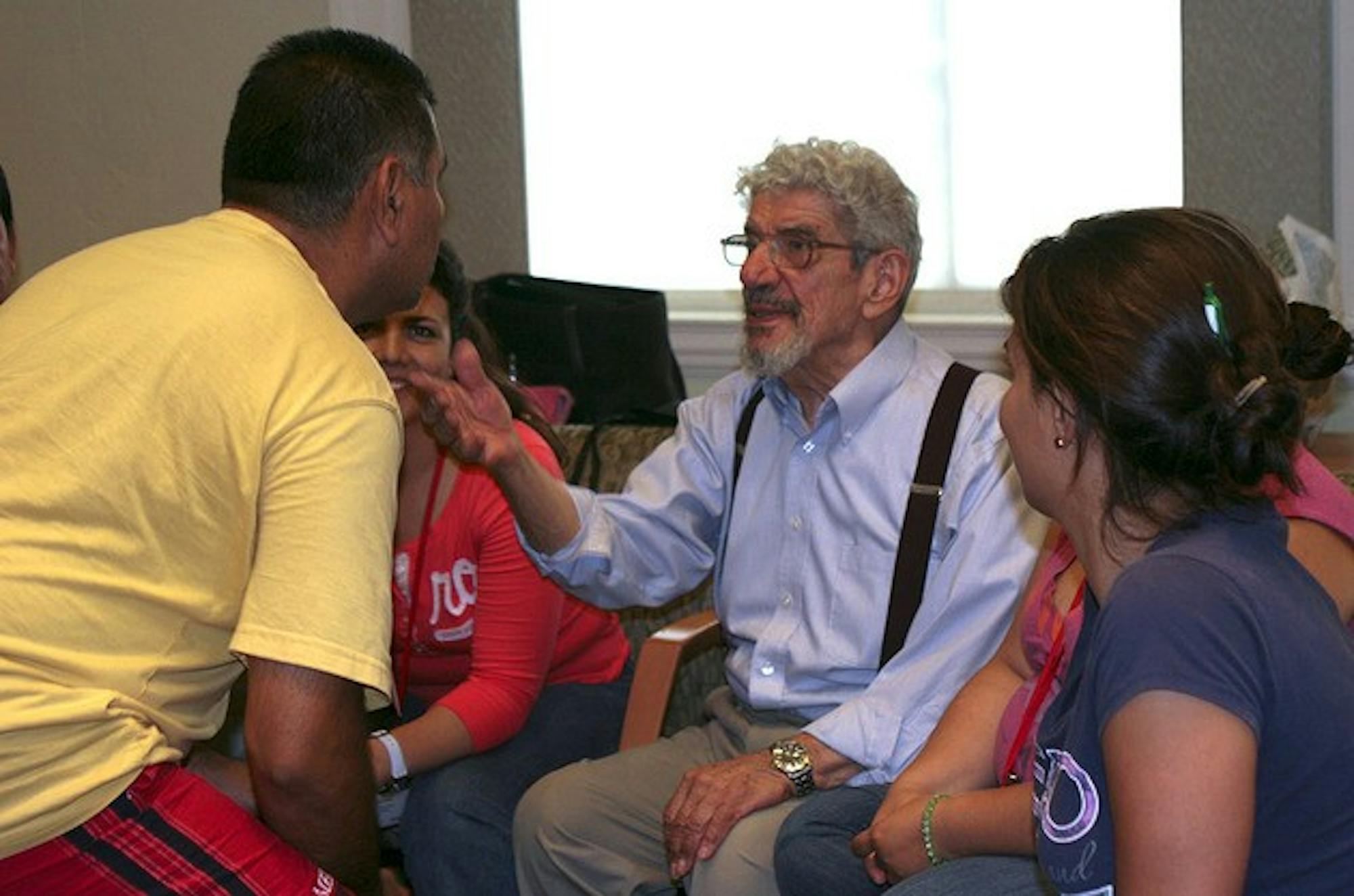The Inter-American Partnership for Education Teachers' Collaborative is now in its fourth year, and the 40 English teachers from Mexico who were invited to this year's 12-day intensive workshop will be on campus until July 30.
During their time at Dartmouth, the teachers attended 100 hours of workshops, seminars, cultural excursions and activities designed to help them become more effective English teachers, according to Jim Citron '86, director of IAPE. They also spent 40 hours with French professor John Rassias learning the Rassias Method, Citron said.
The Rassias Method allows the participants to teach their students with minimal classroom resources, according to Diana Paez, a participant from the Mexican state of Sinaloa.
"Most of the problems that I face and I think it's a common problem in Mexico is we don't have enough resources in the public schools or enough materials to teach our students," Paez said. "[The Rassias Method is] a very humanistic way of teaching. It doesn't require a lot of physical materials to teach. You only need a classroom and kids."
Paez said she thinks that becoming proficient in English will help her students prepare for the future.
"I like to think that I'm helping them to become somebody not only teaching English," she said. "It's such a great opportunity for me to teach more than a language. I can teach a culture, I can teach values."
Rassias considers teaching English to Mexican students to be of "the very highest level of importance," he said, adding that citizens of the United States can also reap the benefits of the cultural exchange that occurs when they interact with people from another nation.
Employing empathy is essential to teaching humanely, Rassias said.
"I believe empathy is key, and it makes all the difference in the world," he said. "If we're going to relate with people, we have to know their insides. They have to know our insides. If we don't do that, we're going to perish, and in certain ways, I think we have."
IAPE aims to build a sustainable network of teachers in Mexico, according to Helene Rassias-Miles, executive director of the Rassias Center.
Zurlo said she hopes the teachers will continue teaching with the Rassias Method and use their new skills to help their peers.
"Ultimately, our hope for the program is to create a big enough community of well-trained teachers such that they have support on the ground and such that they can really spread what they learned to impact more people," Zurlo said.
The IAPE Intensive English program is an eight-day program in Mexico that aims to improve English proficiency among English teachers in Mexico, according to Citron. The programs are taught by teams comprised of three American master teachers, three Mexican and American teaching assistants many of whom are recent Dartmouth graduates or current Dartmouth students and three additional teaching assistants who participated in the Teachers' Collaborative program at the College.
The program helps teachers empathize with their students, Glenn Kim '12, a teaching assistant who participated in the program during Winter term 2011, said.
"Because they were taking classes at the program, I think it gave them an opportunity to become students again," Kim said. "Like students, they were trying to learn something again, and I think for a lot of participants, it was a bit of a shock."
Currently, teachers who participate in the Intensive English program must wait two years before they apply for the Teachers' Collaborative, Citron said.
Planning for the programs began in 2006 when Zurlo approached Rassias with the idea that Worldfund and the Rassias Center could work together with Mexican public school teachers to improve English language education in Mexico, Zurlo said.
In February 2007, Rassias, Rassias-Miles and Zurlo traveled to Mexico to pilot the first project. They worked with 25 teachers from private schools, Zurlo said.
In September 2007, IAPE was recognized as a Clinton Global Initiative commitment a "concrete" plan to address a major international challenge, according to the Clinton Global Initiative web site.
Two Intensive English programs ran in Mexico during the 2009-2010 academic year and one Teachers' Collaborative was held in Hanover, Citron said.
During the 2010-2011 academic year, IAPE grew to include nine programs in Mexico and one in Hanover, which collectively educated 400 teachers.
"There's a demand for it, and Worldfund wanted to meet the demand," Citron said. "They've been fundraising very aggressively to try to raise funds to be able to increase the size of what we do."
Although Zurlo does not plan to expand the program this year, she said she is considering opening a second facility to expand the Intensive English program in Mexico or introducing IAPE to another Latin American country.
The Teachers' Collaborative costs 27,000 pesos per teacher, Citron said. There are 11.6 pesos for every U.S. dollar, according to BusinessInquirer.net.
Teachers do not pay to participate. Instead, the states where they work cover 10 percent of the cost, and fundraising efforts from Worldfund finances the rest.
The Intensive English program costs about $1,800 per person, and Mexican states contribute 20 to 25 percent of those costs, Citron said.
The program is funded in part by Nextel and Becalos, a charitable organization that supports education in Mexico, Citron said.




